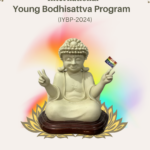
It’s been 7 months since the company-formerly-named-Facebook became Meta. A move that dazed some and confused most but has now faded back into the frenetic pulse of our social media mindstream. However, something foreboding was announced, or at least implied, about the future of social technology when Zuckerberg’s 3D rendered visage shook the world on October 29th, 2021.
In the run up to jettisoning their tarnished moniker, Facebook was wading through an almighty maelstrom of media scrutiny and public backlash that had reached a fever pitch in the wake of The Facebook Files. This series of scathing exposés published by the Wall Street Journal beginning in September 2021, detailed everything from the privileged whitelisting of ‘influential’ accounts (XCheck), to an appalling lack of resources allocated for effective content moderation of hate speech, false information, violence and even human trafficking (especially in languages other than English). Not to mention the heaps of suppressed evidence presented to Facebook brass that Instagram was (and still is) having a significant negative impact on users’ mental health, especially teenage girls.
Mo’ Money, Mo’ Problems:
Evidently, Facebook’s chickens had come home to roost. But while the revelations contained within the Files struck a grotesque chord, the company still earned more than $29 billion in Q3 2021 from advertising revenue. Having crossed the $1 trillion market cap valuation milestone for the first time in Q1 2021, it seemed that nothing could stop Facebook’s financial momentum. Except, of course, the all-pervading truth of impermanence which (since their not-so-subtle Meta-morphosis less than two months after the Files were published) has done significant damage to the company’s bottom line. For just a brief look into the mind-boggling numbers, consider the events of February 2nd, 2022, when Facebook stock plummeted by over 25% in a single day (losing $260 billion of market value) after a disappointing quarterly earnings report. As a result, Zuckerberg lost nearly $30 billion from his net worth, leaving the poor guy with just $85 billion to his name. Boo hoo.
For all intents and purposes, it is nearly impossible to grok the true value of even a single billion dollars, let alone the astronomical numbers that flow through Facebook’s coffers on a quarterly basis. A stupendously lucrative business model, Facebook is free for users because we are the product. Dutifully checking newsfeeds at the slightest pang of boredom our precious quality of attention has been fragmented and bootstrapped to an ingenious algorithm that, if the Files are to be believed, carefully directs our eyeballs toward content (often sexually explicit, politically charged or graphic) that is most likely to keep us locked and scrolling through endless reams of advertisements.
The numbers don’t lie, Facebook and other social media companies are harvesting our attention wholesale in exchange for two-dimensional connectivity and a lot of procrastination. But recently this gravy train is beginning to slow with user engagement dipping on the platform in favor of more ensnaring mediums such as TikTok’s micro-videos. Hence, Facebook’s garish pivot toward virtual reality which promises an unrivaled degree of immersion in the same banal entertainment that has so far made them absurdly rich.
These facts tell us something important about the power dynamics that we participate in as users of social media platforms. To what extent have our nervous systems been hijacked by limbic capitalists keen to squeeze every last drop of our attention away from meaningful connection in favor of infinite doom scrolling? There is a pressing need for more of us to critically understand the reality and implications of these technologies that have now wired themselves into the very fabric of our society, especially as we begin to wade into murky Metaverse waters.
Meta:
While Big Tech continues to silently assault our attentional resources on a daily basis, it is Facebook’s macro vision of the future, encapsulated in their new name, that opens the door to entirely new theaters of war. Zuckerberg explains; ‘‘I used to love studying classics and Meta comes from the Greek word meaning ‘beyond’… it means there is always more to build, there is always a next chapter to the story.” This quote offers a unique view into the mysterious mind of an über technologist and his silicon-fueled social machinery. We will return to these visionary intimations of the ‘next chapter’ in part II, but for now our focus must be honed on the past.
I too loved studying classics and have been fortunate enough to spend time grappling with many flavors of ancient Greek philosophy, especially during the Hellenistic Period (323-30 BCE). One thing becomes abundantly clear to every student that embarks on this journey; the spectrum of ancient thought is colossal and easily appropriated to garnish modern reasoning with classical zest. In this sense, Zuckerberg’s isolation of ‘meta’ (a prefix always followed by a noun in Greek) appears both shallow and woefully disconnected from the stable ground that rightly makes it comprehensible. Indeed, without a substantive reference point this word hangs open like a linguistic escape hatch through which the gritty truths of Facebook’s reality can be neatly bypassed and held at a comfortable corporate distance.
“From now on we are going to be Metaverse first, not Facebook first.’”
– Mark Zuckerberg, Connect 2021
Rising ‘beyond’ the quibbles of 2.8 billion monthly users, Facebook appears to have executed a tidy Cartesian split between their idealistic vision of the ‘Metaverse’ and the all too worldly concerns of the platform’s ethical shortcomings in this verse.
And yet, we can still thank Mr. Zuckerberg for offering us a vivid invocation of the classical period as history is filled with dusty gems of insight that may offer guidance to those of us now weary of the course ahead.
In scanning that same horizon line of antiquity from which ‘meta-’ emerged, the figure of Alexander the Great stands out in high relief for the astounding ability of his Macedonian empire to expand Greek influence beyond all feasible limits. Tutored in his youth by Aristotle, Alexander’s fondness for philosophy and cultural exchange meant he campaigned eastward with an eclectic entourage of intellectuals curious to see what they could learn from distant lands.
Pyrrho:
One such member of Alexander’s royal court was Pyrrho of Elis whose story highlights the value of lifting cultural blinders in the pursuit of truth. Staying in the Indus Valley for some 18 months around 327-325 BCE, Pyrrho encountered what his biographer Diogenes Laertius would later call the ‘Gymnosophists’ of India. The identity of these naked holy men remains a mystery but has become a hotly debated topic within the ivory walls of academia. Christopher Beckwith believes these to have been early Buddhist practitioners, while others contend that they were likely Jain or followers of more archaic schools of Indic philosophy. Regardless of their exact heritage, the influence which these individuals exercised over Pyrrho was immense.
Upon returning to Greece, Pyrrho introduced an entirely novel form of skepticism into the Greek mindstream that hinged upon a radical awareness of the self-canceling polarity that any firmly held belief generates. Pyrrho’s perspective highlighted the fact that every positive affirmation creates the possibility of (given enough time and consideration) an equally potent negation so that the ‘truth’ of any matter ultimately remains ungraspable. As such, Pyrrho posited that the only rational approach to philosophical inquiry (and by extension, life) is the total suspension of judgment (epoché) whereby the mind eventually comes to rest in an abiding peace ‘unknowing’. The integrated contentment of mind (ataraxia) that arises from this practice, is not, however, static: it requires a persistent determination to pursue the inquiry deeper and deeper into the nature of experience itself, ad infinitum. It is only through continually experiencing this oscillation between the poles of any given truth statement that the mind will eventually release its desire to know in the first place and the truth of ungraspability will be, paradoxically, fully grasped.

Though it bears the name of Pyrrhonism, this compelling philosophical praxis was actually formulated nearly 400 years after Pyrrho’s death by the Roman scholar Sextus Empiricus. Having left no writing and only a handful of students, Pyrrho’s thought had faded into near total obscurity until Sextus’ Outlines of Pyrrhonism preserved its general form, albeit through the lens of a multiple century oral tradition.
These core tenets of Pyrrhonism have been presented here as a salient example of the inherent cross-pollination that flows when humans go ‘beyond’ their physical and intellectual environs. Evidently, Alexander’s bloody colonial expansion east generated an Asiatic flavored meta-expansion of his own Western philosophy past the limits of its native cultural container and into fertile uncharted terrain. Appreciating this reciprocal relationship is key to understanding the potential of a boundary dissolving technology such as the Metaverse to transform not only the visible landscape of our digital world, but crucially, the values we will carry into and out of that newfound expanse of cyber terrain.
Zuckerberg’s stated vision for this new chapter of his company is clearly to go “beyond the limits of distance and physics toward a future where everyone can be present with each other.” However, as responsible members of the global village, we must critically assess the underlying implications of such a statement and recognize the leering specter of a neo-colonial attitude that can be glimpsed dancing in its shadows.
We cannot overlook the importance of integrating instructive corollaries to going ‘beyond’ from other cultures as these have the power to transform narrow self-serving tunnel vision into expansive awareness capable of truly serving global needs. If this invitation is rejected the result is an arrogant framework of western-centric values and beliefs that, when wholeheartedly embraced by Big Tech juggernauts much as Meta, verges dangerously close to a data-driven colonialism which, in many respects, has already taken hold of our reality.
Metta:
So where else could we look for a more diversified interpretation of ‘meta’ that may offer a fresh perspective? For this task we might take a leaf out Phyrro’s book and cast our gaze once again eastward to those same ‘Gymnosophists’ that in 325 BCE, if indeed they were early Buddhists, would likely have been absorbed in cultivating an entirely different approach to going ‘beyond’ through the practice of loving kindness (mettā). A pali word, mettā is a multivalent concept variously translated as goodwill, friendliness, benevolence, or loving kindness and is also understood as one of Buddhism’s four immeasurable qualities of mind or divine abodes (Brahma-vihara).

The Karaniya Mettā Sutta recounts an instructive discourse delivered by the Buddha to a group of some 500 monastics who had been driven from their quiet Himalayan grove by angry forest spirits. Unable to focus amidst clouds of violent images and appalling odors that the spirits had summoned, these monks sought out the Buddha for permission to find a new location more conducive to peaceful meditation. Upon hearing their grievances, he determined that this was, in fact, the ideal environment for their practice as the spirits were merely stirring up in their minds the inner afflictions of greed, hatred and delusion that must be overcome in order to achieve inner peace. In ten succinct verses, the Mettā Sutta provided a profound theme for their meditation that each monk practiced diligently over the remaining months of the rains’ retreat. Such was the potency of this teaching that every spirit became their ally, protecting the monastics from even the utmost disturbance until it is said that all became Arahants or fully realized beings.
The practice these 500 monastics undertook was nothing esoteric or complex; it simply involved a sequential expansion of pure benevolent intention beginning with oneself and gradually progressing outward to the point of universal incorporation.
“Verse 4: Whatever beings there are — weak or strong, long or short, big, medium-sized or small, subtle or gross.
Verse 5: Those visible or invisible, residing near or far, those that have come to be or have yet to come, (without exceptions) may all beings be joyful.
Verse 8: Let him cultivate boundless thoughts of loving kindness towards the whole world — above, below and all around, unobstructed, free from hatred and enmity.
Verse 9: Whether standing, walking, seated or lying down, as long as he is awake, he should develop this mindfulness. This, they say, is the divine abiding here”
– Karaniya Metta Sutta
Mettā is, evidently, a means of going ‘beyond’ our highly guarded self-identity by riding a wave of loving kindness that dissolves boundaries to the ‘other’ and resistance to the world of our perceptions. Nothing is excluded, and so the practice of mettā (mettā-bhavana) opens us to a deep and expansive integration of reality at the level of the heart. This approach might be contrasted with the intellectual hop-scotch we so often find in ‘meta’ discussions that seem to float unmoored above life in the streets. Of course, this distinction is artificial for the very ability to extend positive vibrations of good will to invisible beings or humanity as a whole necessitates layers of abstraction that are themselves meta (of a higher order), yet still rooted in our felt experience of care.
The sticking point here is that while mettā is naturally meta, the inverse is rarely true.
Take for instance the ideology and practice of profit-maximizing capitalism; here we have a philosophy capable of organizing enormously complex systems of resources into essentially abstract tokens of meta-value that in turn generate ungodly degrees of suffering. While the reader is encouraged to explore alternative Buddhist economic models, the point remains that where purely meta principles are applied to large scale systems – there often be dragons.
Let us not forget the fire breathing criticisms Facebook was lashed with over the preceding years for its remarkable lack of social responsibility. Is it not likely that these angry intimations were, in fact, invitations to penetrating corporate self-reflection and a more compassionate approach to ‘connecting the world’?
“Nope,” Zuckerberg seemed to say on October 28th. “We’d rather flee from all those uncomfortable feelings and set off for the great ‘beyond’ where everyone can play Uno in space and send us great gobs of meta-tokens for the privilege.” What a pity.
Cynicism:
Though this cynicism certainly has its place, far more constructive insights can be gleaned in connection with the Cynics themselves. Contemporaries of Pyrrho, the Cynics comprised one of the major Hellenistic schools of ancient philosophy and, much to our modern bemusement, didn’t practice the snarky negativity with which their name is now associated. Cynics were anti-establishment, even anti-civilization, emphasizing an intensely ascetic lifestyle focused on living virtuously in alignment with nature. Cynicism’s founding figure, Diogenes of Sinope, was famous for living in a barrel and carrying a total disregard for social norms to the extent that when Alexander the Great approached the lounging philosopher to ask what he could do for him, Diogenes frankly replied ‘step aside, you are blocking the sun’. Notions of right governance or social responsibility were of little concern to the Cynics, however, their detailed examination of virtuous behavior laid important groundwork for subsequent Hellenistic thought; most notably Stoicism, which did take these matters into serious consideration.
Stoicism:
Far from firm upper lip clichés and much like the Cynics, the Stoics presented a fully integrated philosophy of life rooted in the pursuit of virtuous activity. The highest Stoic virtue was rationality as this was considered to always be a beneficial state of mind, regardless of circumstances. To be rational was to live harmoniously with our natural drive for self-preservation (oikeiôsis in Greek), as the Stoics believed that adaptive behavior supports both physical growth and intellectual development. And yet, as we mature it quickly becomes clear that the scope of our individual activity is nested within, and largely conditioned by, a vast social network of other beings. It was here that the Stoics broke away from the Cynics’ rejection of the ‘civilized’ world. Seeking a comprehensive view, Hierocles (1st century CE) presented his classic ‘spheres of concern’ model which encapsulated the Stoic understanding of social interdependence or cosmic citizenship (cosmopolitanism).
Circles of Concern:
Hierocles posited that, due to our inherent drive for self-preservation, we are naturally concerned for ourselves and, by extension, feel drawn to caring for our family members as well. This expanded circle will often also include friends, neighbors and members of our local community as all of these people support our wellbeing, but why would we stop there? Ever faithful to the Stoic virtue of reason, Hierocles understood these spheres of concern to ripple continually out from the focal point of the self to the cosmos as a whole. As such, the Stoic vision of cosmic citizenship and the universal care that supports it bears remarkable similarity to Buddhist mettā and demonstrates the ubiquitous power of compassion to elevate consciousness ‘beyond’ the small self.
But Hierocles didn’t stop at drawing circles, he encouraged everyone to refer to strangers as ‘uncle’, ‘brother’ and ‘sister’ in an effort to help them recognize the ultimate closeness we share with all people. In this way, the outermost circles of concern are drawn inward and there arises an intuitive sense of collective identity that fosters mutual respect for all life. These practices contribute to a truly cosmopolitan life in the Stoic sense of the word and resonate deeply with the skillful practice of mettā in the Buddhist tradition as an antidote to anger and ill-will.
Back to the Future:
For the ancient Greeks this deep sense of connectivity blossomed from quotidian life in the polis, where far flung individuals congregated to exchange wares, cultures, customs and ideas. In our modern world, that same polis has mushroomed into an incomprehensible lattice work of glistening cyber-metropoli, each overflowing with an abundance of data so rich that it dizzies the mind, even in small bursts. The digital town square is in a perpetual riot of passionate voices, every one of which (notwithstanding Twitter bots) connected to a human being that eats, sleeps and breathes just as you do. This reality is perhaps the most fertile ground humanity has ever had for practicing mettā and dilating our circles of concern. Yet, we find ourselves siloed into digital echo chambers, polarized by lack of trust and unconsciously manipulated by the algorithmic machines of corporate capitalism. Here we are, and it’s only going to get weirder in the Metaverse.
But before jumping to the future, we must sit for a moment with these various elements from our past and recognize that Zuckerberg was on the right inspirational path, though there is much more to discover around the bend. Ancient wisdom east and west abounds with guidance for those seeking to go ‘beyond’ and warns that such an endeavor necessitates a careful synthesis of intention with action, lest what we leave behind is the heart of our humanity itself.
As Newton said, ‘if I have seen further it is because I have stood on the shoulders of giants,’ an explicit homage to the plurality of supports that instructed his visionary insights and a key point to integrate as our polis expands ever further into digi-terra incognita.
Part II [coming soon]
Written by Dexter Cohen Bohn





